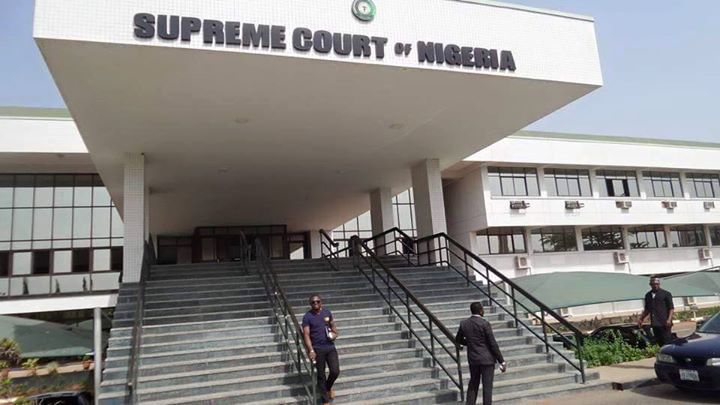Supreme Court Fixes October 22 to Hear Suit By 16 State Govts
The Supreme Court has scheduled a hearing on October 22 for a lawsuit filed by 16 state governments contesting the legitimacy of the laws that established the Economic and Financial Crimes Commission (EFCC) and two others.
A seven-member panel of justice, led by Justice Uwani Abba-Aji, set the date after the states were joined as co-plaintiffs and leave was granted to consolidate the case in the complaint originally filed by the Kogi State Government through its Attorney General.
The following states have joined the suit: Ondo, Edo, Oyo, Ogun, Nassarawa, Kebbi, Katsina, Sokoto, Jigawa, Enugu, Benue, Anambra, Plateau, Cross River, and Niger.
The 16 states are relying on the notion that the Constitution is the supreme law, and any law that contradicts it is invalid.
In Dr. Joseph Nwobike vs. Federal Republic of Nigeria, the plaintiffs claimed that the Supreme Court incorporated a UN Convention against corruption into the EFCC Establishment Act, and that the law’s 2004 adoption did not comply with Section 12 of the 1999 Constitution, as amended.
They argue that integrating a convention into Nigerian law requires compliance with Section 12’s provisions.
According to them, the Constitution required the majority of the states’ Houses of Assembly to agree to convene the convention before approving the EFCC Act and other legislation, which was allegedly never done.
According to the provisions of the Nigerian constitution, the states contend in their current challenge that the law, as enacted, cannot apply to states that did not ratify it.
As a result, they claimed that any institution founded in this manner should be considered illegitimate.
When the case was called, the majority asked to be joined as co-plaintiffs, while two states asked for an order to consolidate the proceedings.
Abdulwahab Mohammed, counsel for the Kogi State Government and Attorney General, informed the court that certain states had showed interest in consolidating the action, while others wanted to join as co-plaintiffs.
“It is up to this honourable court to instruct us how to continue, my lord. Out of around 15 states, about 13 have expressed an interest in being co-plaintiffs, with only two requesting consolidation.
Mohammed went on: “To make the court’s task easier, we should join those who want to be co-plaintiffs and follow the processes already filed, and we should ask those who sought consolidation to file within seven days.”
Following the lawyers’ remarks, Justice Abba-Aji granted their pleas.
She set a hearing date of October 22.
The Kogi State AG named the Attorney-General of the Federation (AGF) as the sole defendant in the lawsuit.
In the originating summons, filed by a team of attorneys led by Prof. Musa Yakubu, SAN, the state presented six questions for resolution and requested nine reliefs.
The reliefs sought include a declaration that the Federal Government of Nigeria, through the Nigerian Financial Intelligence Unit (NFIU) or any other Federal Government agency, lacks the authority to issue any directive, guideline, advisory, or instrument of any kind for the administration and management of funds belonging to Kogi State of Nigeria or any local government area in Kogi State.
According to the declaration, the Economic and Financial Crimes Commission (EFCC), the Nigerian Financial Intelligence Unit (NFIU), or any other Federal Government of Nigeria agency is prohibited from investigating, requisitioning documents, inviting, or arresting anyone for offences involving the administration and management of funds belonging to Kogi State of Nigeria or any of its Local Government Areas.




